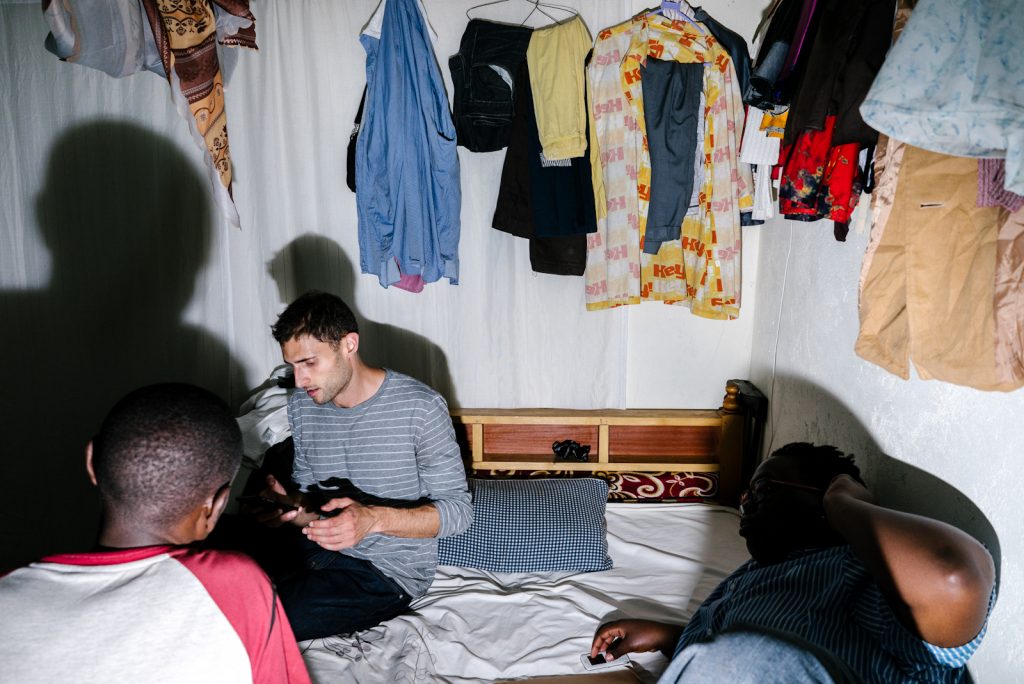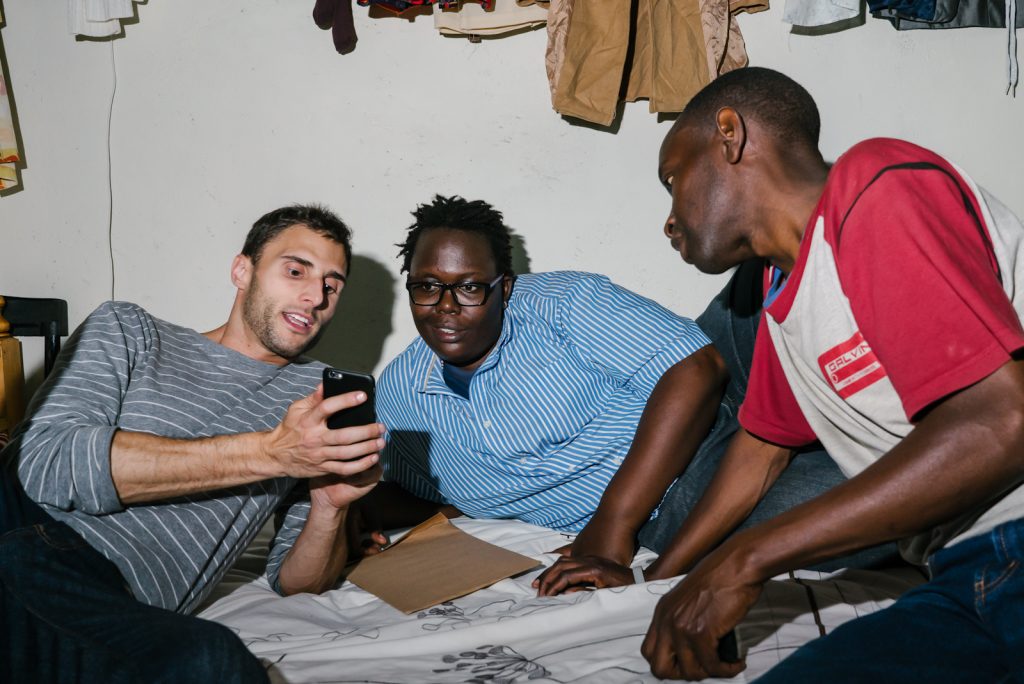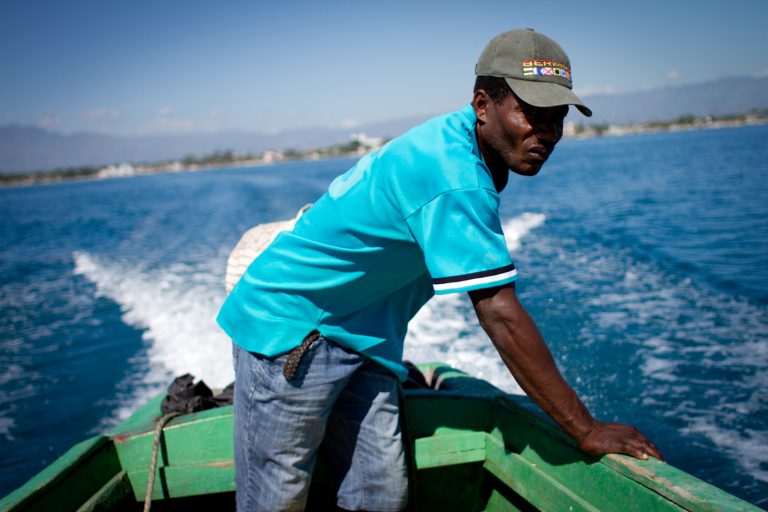Donors claimed they would fix Fabienne Jean’s body. They broke her heart instead.

Cynthia, a lesbian who fled Burundi, and Sulait, a gay man from Uganda, share their stories from their refugee hideout in Nairobi, Kenya. Both have since been resettled abroad. Photo: Jake Naughton
A longtime source of mine once tried to convince me that “We are all refugees, wherever we are. Anything could happen tomorrow, and I’d have to be on the run.” But my life couldn’t be more different, I countered – there’s nothing on the horizon forcing me to flee. His concept of home was so impermanent: “No matter how much you want a place to be home, it’s not going to be forever.”
I think what draws me to people in flux is the chance to understand a nomadic life that’s so different from my own. “That’s one thing I learned – not to get hung up about home,” he told me. “To make home wherever you are. To not have too many expectations.” That last phrase stuck with me – the idea that the world’s displaced may have given up expecting anything from the rest of us. I hope that my reporting draws some attention to their plight.
Read: The Overseas Press Club

“Solutions journalism” is built around understanding not just what’s failing, but also what is working–and why. Too often we report singularly on problems without taking the time to explain when viable solutions to them exist. Solutions journalism doesn’t argue against covering abuses of power, conflict or corruption. It merely asserts that unless we also shed light on potential solutions to those problems, we haven’t quite finished the job.
Read my piece on the importance of Solutions Journalism in international reporting in Dateline, the magazine of the Overseas Press Club of America. Learn more at SolutionsJournalism.org

/ JACOB KUSHNER
The death toll from Hurricane Matthew in Haiti—now officially at 336, though likely far higher—is a big part of why the world is paying attention to Haiti right now. It’s in the headlines, it’s in the ledes. It’s the reason news agencies continuously hunt for the highest figures: The higher your death toll, the more fresh, the more ominous your reporting appears, and the more likely it is that TV news stations, newspapers and news websites will choose your story over your competitor’s.
We should care that hundreds of people have died. But we shouldn’t only care when a storm hits. More than 9,000 Haitians have died from cholera in the six years since the United Nations introduced the disease there. Diarrhoeal diseases kill at least 4,600 Haitians each year. Those diseases are usually brought on by lack of clean water and sanitation — things with relatively simple and low-cost fixes that neither Haiti’s government nor the international aid community has invested in sufficiently to fix.
A friend of mine who works for a major aid organization in Haiti messaged me last week that “it’s awful trying to get to the south with the bridge down, blocked roads, etc. So sad.” She’s talking about a bridge on the same road I traveled back in 2010 to cover hurricane Thomas as it struck Haiti’s south. Indeed, bridges in Haiti fall frequently when storms hit. Without them, aid workers can’t get to the affected areas easily, or at all.
How many of us have opened our wallets in the past five years to donate to the construction of bridges in Haiti — or roads?
More to the point, how many news outlets that are gaining clicks and ad revenue by reporting on the current death toll in Haiti bothered to report on any solutions to Haiti’s chronic infrastructure or health problems in the past? Absent any solutions-oriented coverage, the recent barrage of news about the tragic toll of Hurricane Matthew feels an awful lot like disaster porn.
Read the full Op/Ed at the UW-Madison Center for Journalism Ethics or at MediaShift.